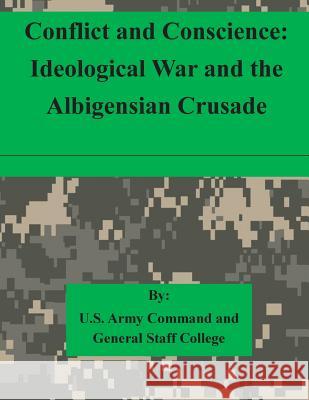Conflict and Conscience: Ideological War and the Albigensian Crusade » książka
Conflict and Conscience: Ideological War and the Albigensian Crusade
ISBN-13: 9781511615440 / Angielski / Miękka / 2015 / 118 str.
This thesis is a case study on ethics within war. The thirteenth century Albigensian Crusade was a war against a heretical religious ideology known as Catharism whose tenets threatened the social order of Europe. The campaign took place in present-day southern France, a region that was at the heart of medieval Christendom. While the Church had recognized the area's slow decline into heresy for over a century, only during the papacy of Pope Innocent III did the situation escalate to necessitate armed conflict. Following the papal call to crusade, Christian nobles and knights from France and Germany formed an ad hoc army that waged a war of occupation for two decades (1209-1229) against an elusive enemy. Despite the military accomplishments of the Crusade, the most important factor leading to its eventual victory was moral. In the end, the nobles and citizens of the region were persuaded to abandon their sympathies towards the Cathar heretics, not through violent coercion but by winning their hearts and minds. This case study's particular emphasis on the moral challenges of this unique type of ideological war offers a historical parallel with the Global War on Terrorism that our nation engages in today.
Zawartość książki może nie spełniać oczekiwań – reklamacje nie obejmują treści, która mogła nie być redakcyjnie ani merytorycznie opracowana.











